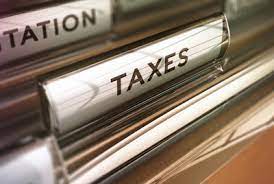Tax on income is assessed to residents of the state of New Jersey. A portion of the amount you earn in New Jersey is tax-exempt, including certain types of benefits and investment income. This table summarizes the percentage you owe and your take-home pay in New Jersey. Whether you have a high-income job or not, you should calculate your potential tax liability and determine whether it will affect your monthly budget.
In New Jersey, this tax is applied to taxable income, which is your income less certain deductions. You can deduct up to $1,000 in expenses from your taxable income. Also, you can deduct certain expenses, including unreimbursed medical expenses. Property taxes are also deductible in New Jersey. For self-employed taxpayers, health insurance payments are deductible. You can even get a credit card or use a debit card to pay your taxes.
You can also deduct some expenses from your taxes. The first step is determining how much you spend on expenses each year. Generally, you can deduct up to $10,000 from your tax bill. However, if you have children or other dependents, you can deduct up to $1,000 from your income. In the event that you have more than $10,000 in income, you should file a separate schedule. It is better to pay more than you owe.
In New Jersey, unemployment insurance payments and social security benefits are tax-exempt. The same goes for federal railroad retirement benefits and American military pensions and survivor’s benefits. Permanent disability payments such as family leave pay are also tax-exempt. Welfare benefits, such as food stamps and housing subsidies, are not taxable. Even more, you can also apply for an extension of the income tax deadline by paying your taxes online.
If you are facing an audit, it is essential that you consult a New Jersey  tax attorney before submitting your tax return. A qualified tax lawyer can help you avoid unnecessary taxes and maximize your income. An experienced and skilled tax attorney in New Jersey will help you make the best decisions regarding your taxes. You need to avoid making mistakes that could result in a legal case. It is always best to hire a professional who knows the law and can guide you through the process.
tax attorney before submitting your tax return. A qualified tax lawyer can help you avoid unnecessary taxes and maximize your income. An experienced and skilled tax attorney in New Jersey will help you make the best decisions regarding your taxes. You need to avoid making mistakes that could result in a legal case. It is always best to hire a professional who knows the law and can guide you through the process.
There are various options available to reduce a tax debt. Depending on the situation, a New Jersey tax attorney may be able to find ways to reduce your tax debt. Some options include an offer-in-compromise, a reduction in the amount you owe, or an analysis of whether your tax debt falls outside the statute of limitations. Once you have hired a qualified attorney, you can begin your journey toward a debt-free future.